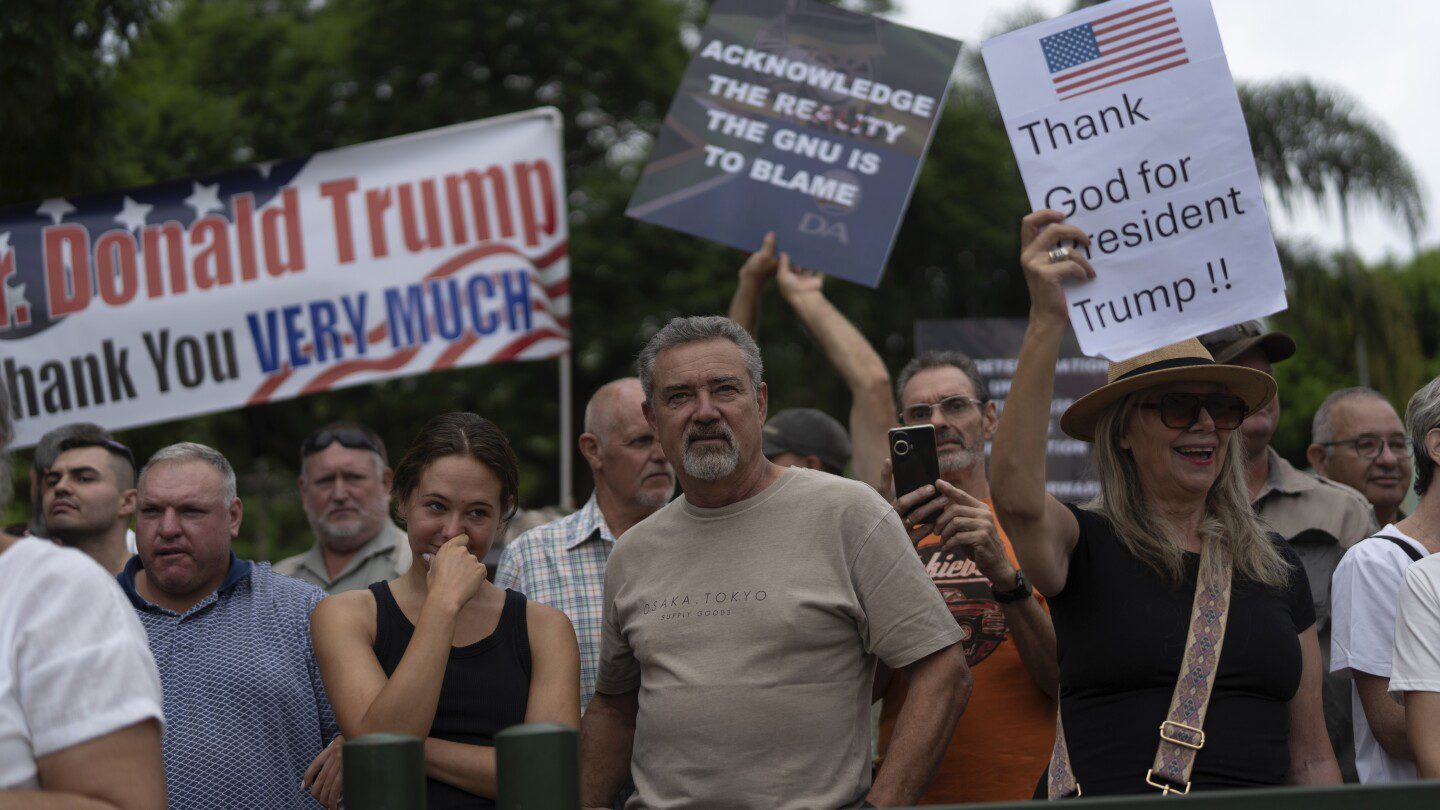
PRETORIA, South Africa (AP) — On Saturday, a gathering of white South Africans rallied outside the U.S. Embassy in Pretoria to express their support for President Donald Trump. They claimed to be victims of racism perpetrated by their own government.
Hundreds of demonstrators held signs proclaiming “Thank God for President Trump,” along with various messages condemning what they perceive as discriminatory laws enforced by the South African government that adversely affect the white minority.
Among the protesters were many individuals from the Afrikaner community. Last week, Trump issued an executive order that withdrew aid from the Black-led South African government, citing the targeting of Afrikaners—descendants of predominantly Dutch settlers—due to a new law permitting the government to seize private land.
In response, the South African administration denied that the law is racially driven, asserting that Trump’s statements surrounding the legislation are rife with inaccuracies.
Trump claimed that land is being taken from Afrikaners, whom the order referred to as “racially disfavored landowners,” despite no land being actually expropriated under the current law. He also proposed granting Afrikaners refugee status in the United States, noting that they represent only a segment of South Africa’s white population.
During a parliamentary speech this week, South African President Cyril Ramaphosa emphasized that the involuntary removal of any individuals from their land will not be tolerated again, referencing the historical injustices faced by millions of Black people during the apartheid era and centuries of prior colonialism.
Ramaphosa stated, “The people of this country understand the pain associated with forced removals.” He clarified that the land expropriation law does not permit arbitrary seizures and is intended solely for public benefit.
The critical remarks from the Trump administration have highlighted an ongoing challenge in South Africa, addressing the historical injustices of decades of white minority governance that marginalized the Black majority.
The government contends that the purpose of the land law is to rectify the longstanding inequality created by the disproportionate ownership of farmland by whites, who constitute only 7% of South Africa’s population.
On Saturday, the white protesters displayed banners not only regarding the land expropriation law but also concerning other affirmative action measures implemented since the end of apartheid in 1994 aimed at improving opportunities for Black South Africans. These policies, recognized as Black Economic Empowerment, have become contentious for some within the white community.
Elon Musk, a prominent advisor to Trump who spent his formative years in South Africa, has long criticized the South African government for alleged anti-white policies. His recent attempts to secure a license for his Starlink satellite internet service in South Africa have been challenged due to non-compliance with the nation’s affirmative action standards.
Despite the enduring racial dynamics in the political landscape, South Africa has made significant strides in uniting its diverse populace in the post-apartheid era. The current government comprises a coalition of ten political parties, led by both Black and white leaders, collaborating to foster national progress.
___
Reporting from Cape Town, South Africa, by Imray.
___
For more updates, visit AP Africa news: https://apnews.com/hub/africa









